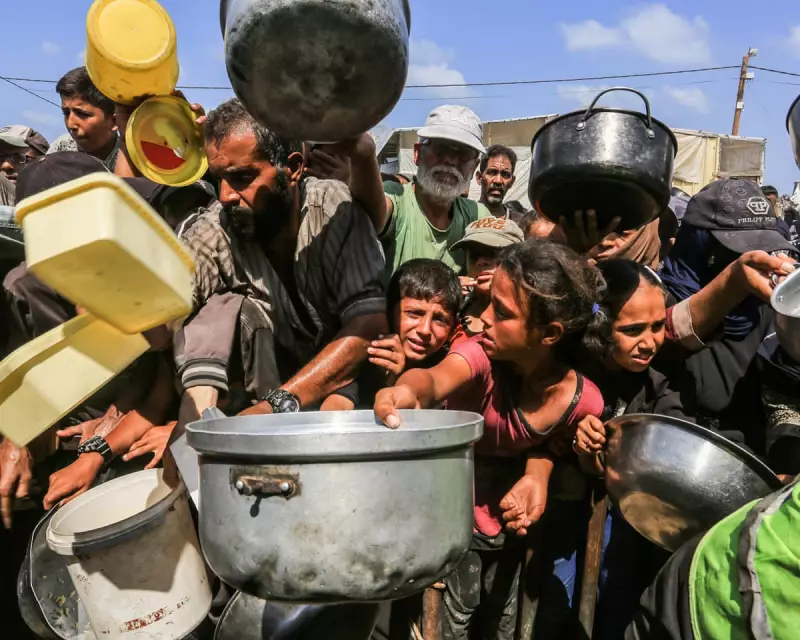
Israeli Prime Minister Benjamin Netanyahu has ignited a firestorm of international criticism by flatly denying the existence of a famine in Gaza, directly contradicting devastating assessments from United Nations agencies and aid organisations on the ground.
The controversial statement, made during a televised address, places Israel on a further collision course with the international community as the humanitarian situation in the besieged strip reaches catastrophic levels.
Aid Blockades and a Deepening Catastrophe
The core of the crisis revolves around the severe restriction of aid entering Gaza. Despite mounting pressure, Israel maintains a tight grip on border crossings, arguing that inspections are necessary to prevent weapons from reaching Hamas. This has created a bottleneck, with hundreds of trucks loaded with essential supplies stranded and unable to deliver food, water, and medical aid to a starving population.
UN officials report that over half a million people are now facing "catastrophic" food insecurity, with famine already taking hold in the northern regions of Gaza. Hospitals are recording a surge in malnutrition-related deaths, particularly among infants and young children.
Ceasefire Negotiations Remain Deadlocked
Meanwhile, hopes for a lasting truce appear to be dwindling. Mediated negotiations between Israel and Hamas have once again reached an impasse. Key sticking points include the terms of a permanent ceasefire and the release of Israeli hostages held in Gaza versus Palestinian prisoners in Israeli jails.
The breakdown in talks signals a prolonged continuation of the conflict, dashing hopes for the reprieve desperately needed to facilitate a massive-scale humanitarian operation.
International Recoil and Diplomatic Fallout
Netanyahu's dismissal of the famine claims has been met with swift condemnation from world leaders and diplomatic bodies. The UK, along with EU allies, has expressed profound alarm, urging Israel to open all available land routes for aid immediately to prevent further loss of life.
This incident is seen as further isolating Israel on the global stage, potentially influencing policy decisions in Western capitals regarding arms sales and diplomatic support. The gap between Israel's narrative and the reality witnessed by aid agencies is creating a significant credibility crisis for the Netanyahu government.
The Staggering Human Cost
The human cost of the conflict continues to rise at an alarming rate. The latest figures suggest the Palestinian death toll has surpassed 45,000, with a significant proportion being women and children. The ongoing offensive, particularly in areas like Rafah, continues to displace civilians who have nowhere safe to go, exacerbating the humanitarian emergency and complicating aid delivery efforts.
The situation in Gaza remains one of the world's most severe human-made humanitarian disasters, with the denial of famine conditions adding a new layer of controversy to an already devastating war.





